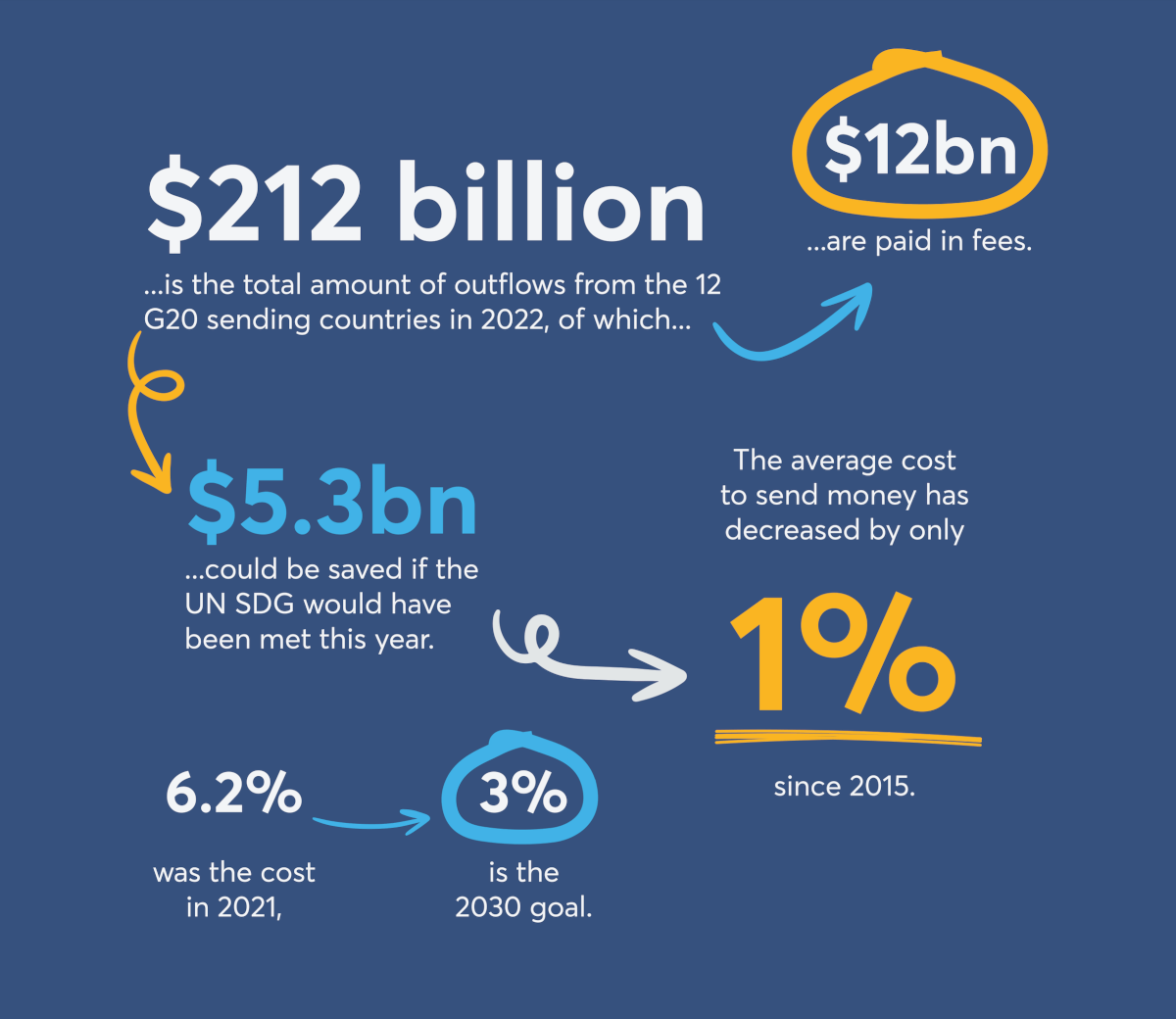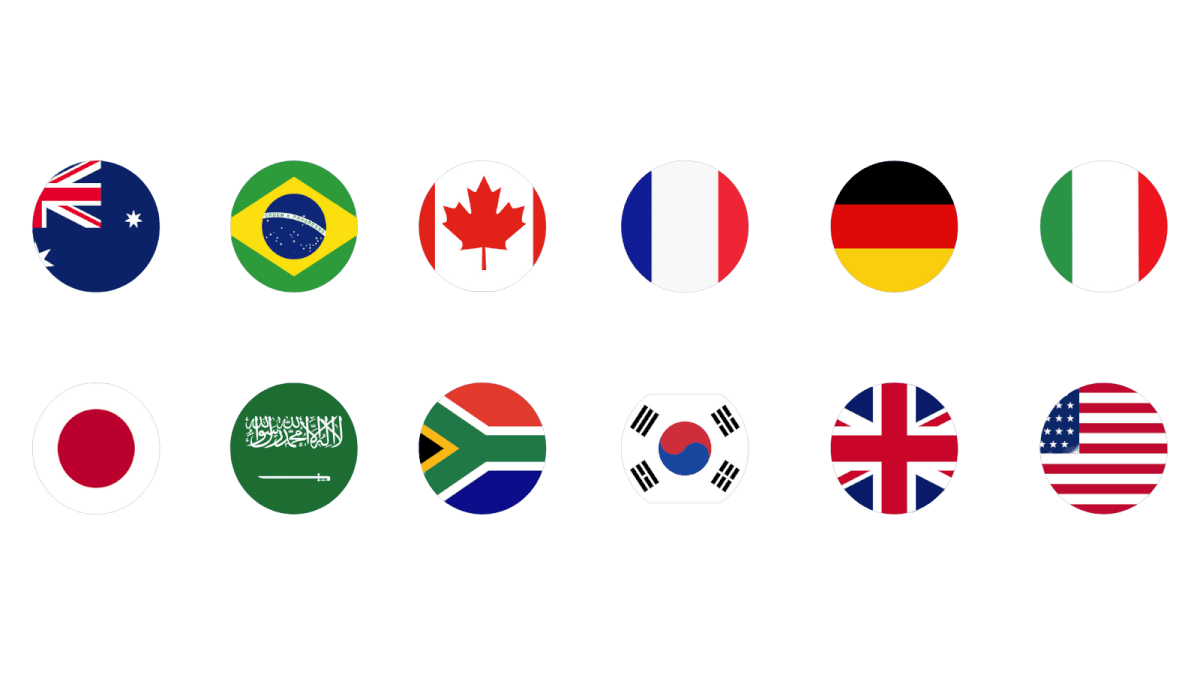In 2022, these G20 countries sent nearly $212 billion in remittances
But nearly $11.6 billion was lost to fees along the way
The reason remittance prices remain high is the lack of transparency. Today, providers can tell consumers their transfers are “free”, include “0% commission” or cost just a low fixed fee of $5. In reality, however, the biggest cost is hidden in a terrible exchange rate. This hurts remittance senders and receivers.
If more progress had been made on lowering the cost of remittances to the 3% target set by the United Nations, the people on the receiving end could have ended up with over $5 billion more.




